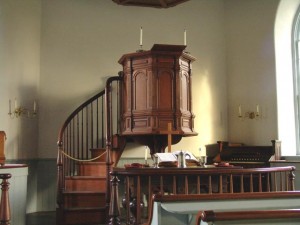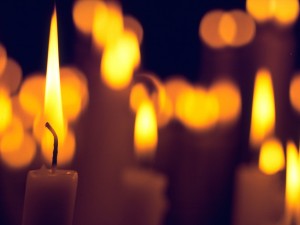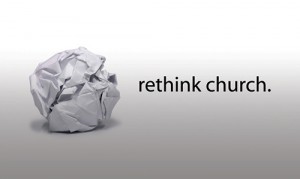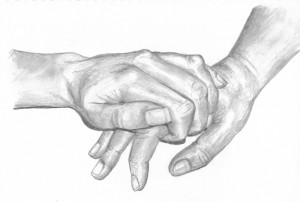====================
This sermon was preached on Tuesday, November 6, 2012, at St. Paul’s Episcopal Church, Medina, Ohio, where Fr. Funston is rector.
(Lessons selected for the Mass were Isaiah 26:1-8, Romans 13:1-10, and Mark 12:13-17, from the Episcopal Book of Common Prayer’s lectionary for various occasions, “For the Nation”; the gradual, Psalm 146, was selected by the preacher.)
====================
 “This election is the most important, ever. If that candidate is elected, it will be the end of the world!” The first time I heard that was during the campaign of the first presidential election I paid attention to: the race between John F. Kennedy and Richard Nixon in 1960. I heard it as my family watched the televised debate; it was said by my older brother who was then a freshman studying history and political science at the University of Texas, so of course he knew everything. “That candidate,” by the way, was Richard Nixon. We heard it again in 1964; remember the television commercial with the little girl plucking petals from a daisy and the atomic explosion? “If Barry Goldwater is elected,” it suggested none too subtly, “it will be the end of the world.” We hear it every election, “This election is the most important election of our lifetimes.” And, to be honest, that is a correct statement. Those in the past are no longer important; they’re done and other with. Only this election can impact the future so, at this time, up to now, it is the most important. But truth be told . . . none of them, including this election, are really all that important in the grand scheme of things.
“This election is the most important, ever. If that candidate is elected, it will be the end of the world!” The first time I heard that was during the campaign of the first presidential election I paid attention to: the race between John F. Kennedy and Richard Nixon in 1960. I heard it as my family watched the televised debate; it was said by my older brother who was then a freshman studying history and political science at the University of Texas, so of course he knew everything. “That candidate,” by the way, was Richard Nixon. We heard it again in 1964; remember the television commercial with the little girl plucking petals from a daisy and the atomic explosion? “If Barry Goldwater is elected,” it suggested none too subtly, “it will be the end of the world.” We hear it every election, “This election is the most important election of our lifetimes.” And, to be honest, that is a correct statement. Those in the past are no longer important; they’re done and other with. Only this election can impact the future so, at this time, up to now, it is the most important. But truth be told . . . none of them, including this election, are really all that important in the grand scheme of things.
In the Daily Office Lectionary of the Episcopal Church, the cycle of bible readings to be read each morning, today’s New Testament reading was from the Book of Revelation which records the vision St. John of Patmos had of “the new Jerusalem,” of heaven. In the lesson, this is what John reports:
I saw what appeared to be a sea of glass mixed with fire, and those who had conquered the beast and its image and the number of its name standing beside the sea of glass with harps of God in their hands. And they sing the song of Moses, the servant of God, and the song of the Lamb:
“Great and amazing are your deeds,
Lord God the Almighty!
Just and true are your ways,
King of the nations!
Lord, who will not fear
and glorify your name?
For you alone are holy.
All nations will come
and worship before you,
for your judgments have been revealed.” (Revelation 15:2-4)
This song of praise was a wonderful reminder with which to begin Election Day: God is the king of the nations; he alone is holy. As we went to the polls today, we were casting our ballots for political leaders, not religious ones, and certainly not a savior. Today we chose between candidates for various offices, all of whom are simply human beings like ourselves, fallible human beings whom we hope will strive to overcome whatever their faults and frailties may be, and govern to the best of their abilities. Whether the candidates for whom you or I happened to vote are elected is not, at this point, of any real importance; what is of importance is that we respect and honor our system of governance, and support and pray for whichever candidates are ultimately placed in office.
The Psalm which we recited just a few minutes ago reminds us:
Put not your trust in rulers, nor in any child of earth, for there is no help in them.
When they breathe their last, they return to earth, and in that day their thoughts perish.
(Ps. 146:2-3, BCP version)
We are admonished not to rely, although we surely do, on our earthly leaders. We repose more trust, and certainly more expectation, than we ought in our elected leaders, forgetting that they are no different from, nor more perfect than we.
This evening we do not celebrate nor do we extol any political party, any platform, any candidate, any elected office holder. Instead, we give thanks for the freedoms we enjoy, for the country we love, and for the electoral process which allows us to maintain both through peaceful changes in government. We give thanks for the wisdom of our Founding Fathers, for the insight of the framers of the Constitution, for the bravery and sacrifice of those who have defended our rights and liberties, and for the commitment of our fellow citizens who have participated in our democracy and voted in this election. We give thanks for all these things to the one upon whom all this rests, to the one who is the foundation of our existence, to the one who is our ultimate concern, to the one in whose service we find perfect freedom.
When we gather to give thanks for and to pray for our national life, the lectionary of our church asks us to hear and consider the story of the Pharisees and Herodians asking Jesus about taxes: Is it lawful to pay them to Caesar? To which Jesus’ makes his famous reply, “Render to Caesar the things that are Caesar’s and to God the things that are God’s.” This gospel story, says theologian Daniel Deffenbaugh
. . . calls us to be neither enemies of the state nor its staunch allies. Rather, we should think of ourselves, in the words of Stanley Hauerwas, as “resident aliens. ” We do not refuse to give to the emperor the things that are the emperor’s, even when – much to our dismay – their utilization defies our most deeply held convictions. This is as true of the right as it is of the left, and in this we can take some solace. But the affections of our hearts and minds must always, and with greater fervor, be focused on the more urgent clause in Jesus’ directive: “give to God the things that are God’s.” (Allies or Enemies?
This, he says, leaves us in a “posture of perpetual discernment,” constantly trying to distinguish our steadfast devotion to God from our obligations to the nation.
The Cathechism of the Roman Catholic Church interprets this gospel tale as teaching that we should “give to God everything, but give Caesar his due.” Thus, we are called to take part in our national culture for the common good. “It is necessary that all participate, each according to his position and role, in promoting the common good. This obligation is inherent in the dignity of the human person.” (CCC 1913) To the best of our ability, we should all participate in the public arena for the good of the society. Jesus’ answer to the Pharisees and Herodians gives each person freedom to act in that public sphere, but with that freedom come awesome responsibilities, none more awesome than the privilege and obligation to participate in democratic elections, even if we do so in a “posture of perpetual discernment.”
We do our best in that state of constant decision-making. We study the issues and the candidates. We make our choices. We participate in the public arena. We vote. And then we trust . . . not in rulers, not in political parties, not in the candidates, not in any child of earth . . . We render our trust not to Caesar nor anything that is Caesar’s, but to God. It is not that our vote is unimportant, but it is not of ultimate concern.
In the Anglican Communion on November 6, we commemorate one of our greatest theologians, Archbishop William Temple, who served as Archbishop of Canterbury near the Second World War. He served in that post only two years, from his appointment in 1942 to his death in October, 1944. He served in the episcopate for 23 of his 63 years, first as Bishop of Manchester, then as Archbishop of York, and finally in the See of Canterbury. Throughout his life, he was a prolific author of philosophy and theology.
While serving in York, he addressed the 1938 Lambeth Conference, the decennial gathering of Anglican bishops, with these words which, I think, are a good reminder for us today:
While we deliberate, God reigns.
When we decide wisely, God reigns.
When we decide foolishly, God reigns.
When we serve God in humble loyalty, God reigns.
When we serve God self-assertively, God reigns.
When we rebel and seek to withhold our service, God reigns –
The Alpha and the Omega, which is and which was,
And which is to come, the Almighty.
John of Patmos in his apocalypse, the Psalmist in Psalm 146, Archbishop Temple in his address to the gathered bishops . . . they all remind us that no matter how we decide, no matter who is elected today, God reigns. As the graphic on the cover of our bulletin says, “No matter who is president, Jesus is king.”
Let us pray.
O God of light and love, inspire us, we pray, that we may rejoice with courage, confidence, and faith in the Word made flesh, Jesus our King, and that through our participation in our national culture and our democratic processes we may establish that society which has justice for its foundation and love for its law; through the same Jesus Christ, our Lord, who lives and reigns with you and the Holy Spirit, one God, now and for ever. Amen.
====================
A request to my readers: I’m trying to build the readership of this blog and I’d very much appreciate your help in doing so. If you find something here that is of value, please share it with others. If you are on Facebook, “like” the posts on your page so others can see them. If you are following me on Twitter, please “retweet” the notices of these meditations. If you have a blog of your own, please include mine in your links (a favor I will gladly reciprocate). Many thanks!
====================
Father Funston is the rector of St. Paul’s Episcopal Church, Medina, Ohio.
 My father-in-law died a week ago; he will be laid to rest later today. His ashes will be interred next to those of my mother-in-law, his first wife, who passed away sixteen years ago. Marge was a Christian and an active church member; Paul was not. I’m not sure he was ever baptized but, if he was, he left that behind long ago. (Yes, I know the theology of baptism – once baptized, always baptized – and that may true from the church’s point of view, perhaps even from God’s perspective, but that was not Paul’s reality.)
My father-in-law died a week ago; he will be laid to rest later today. His ashes will be interred next to those of my mother-in-law, his first wife, who passed away sixteen years ago. Marge was a Christian and an active church member; Paul was not. I’m not sure he was ever baptized but, if he was, he left that behind long ago. (Yes, I know the theology of baptism – once baptized, always baptized – and that may true from the church’s point of view, perhaps even from God’s perspective, but that was not Paul’s reality.) From time to time, people tell me that they have appreciated something I’ve said or done and I try to remember to say, “Thank you.” But inside, I really don’t think about compliments very much. It’s not that I don’t appreciated them, but I don’t do what I do to be complimented, and I really don’t think that I have much to do with it when whatever I do has gone well or had a positive impact on someone. I sort of take Paul’s attitude from the Letters to the Romans and the Galatians: “It is no longer I who live, but it is Christ who lives in me” (Gal. 20:2) and “I will not venture to speak of anything except what Christ has accomplished through me” (Rom. 15:18). So I do think, generally, that the answer to Eliphaz’s question is, “Yes.” Mortals can be of use to God. But there are times I would answer otherwise.
From time to time, people tell me that they have appreciated something I’ve said or done and I try to remember to say, “Thank you.” But inside, I really don’t think about compliments very much. It’s not that I don’t appreciated them, but I don’t do what I do to be complimented, and I really don’t think that I have much to do with it when whatever I do has gone well or had a positive impact on someone. I sort of take Paul’s attitude from the Letters to the Romans and the Galatians: “It is no longer I who live, but it is Christ who lives in me” (Gal. 20:2) and “I will not venture to speak of anything except what Christ has accomplished through me” (Rom. 15:18). So I do think, generally, that the answer to Eliphaz’s question is, “Yes.” Mortals can be of use to God. But there are times I would answer otherwise.  As the letter to the Romans draws to a close, Paul sends greetings to several persons by name: Phoebe (named here), Prisca, Aquila, Epaenetus, Mary, Andronicus, Junia, and many others. As I read through there names, I cannot help but wonder who these otherwise forgotten church members were. What were their roles in the church? What did they do outside the church?
As the letter to the Romans draws to a close, Paul sends greetings to several persons by name: Phoebe (named here), Prisca, Aquila, Epaenetus, Mary, Andronicus, Junia, and many others. As I read through there names, I cannot help but wonder who these otherwise forgotten church members were. What were their roles in the church? What did they do outside the church? I once served under a bishop who used a slightly edited version of this text as his final blessing at the conclusion of a eucharist, adding “and may the blessing of God Almighty (etc.)” to Paul’s admonitions. Whenever he would recite these words, my mind would stumble over that last sentence: “If it is possible, so far as it depends on you, live peaceably with all.” Doesn’t it always depend on us? Isn’t that the point of the gospel mandate, to live peaceably with all even when they don’t want to? Isn’t that what “turn the other cheek” and “give even your cloak” and “go the extra” (Matt. 5:39-41) mile are all about? It is always in our power to do the peaceable thing.
I once served under a bishop who used a slightly edited version of this text as his final blessing at the conclusion of a eucharist, adding “and may the blessing of God Almighty (etc.)” to Paul’s admonitions. Whenever he would recite these words, my mind would stumble over that last sentence: “If it is possible, so far as it depends on you, live peaceably with all.” Doesn’t it always depend on us? Isn’t that the point of the gospel mandate, to live peaceably with all even when they don’t want to? Isn’t that what “turn the other cheek” and “give even your cloak” and “go the extra” (Matt. 5:39-41) mile are all about? It is always in our power to do the peaceable thing. My church, the Episcopal Church meeting in its 77th General Convention, took two incredibly large steps today which, I believe (and hope and pray), will make us conquerors. First, the House of Deputies unanimously passed a resolution to set in motion a process for re-imagining and possibly restructuring the church. Second, the Deputies voted by a 3-to-1 majority (in both the clerical and lay orders) to concur in an action of the House of Bishops adopting a provisional rite for the blessing of the life-long committed relationships of couples of the same sex; the Bishops had approved the rite by a greater than 2-to-1 majority. Although the second action will get (and has already gotten) by far the greater press coverage and will generate the greatest amount of “heat” and public interest, it is the former that is of greater importance. ~ In preaching on this passage, a former mentor of mine often said that the most important potential obstacle included in the “anything else in all creation” that cannot separate us from God in Christ is . . . ourselves. In passing the resolution to re-imagine and restructure the church, the General Convention has said that we will get out of the way; we will get out of the Spirit’s way, we will get out of our own way! ~ There is much work to be done, but it seems to me that the hardest work will be the letting-go and stepping-aside . . . letting go of old ways of doing and being church, letting go of expectations of how it has been done and how it ought to be done, letting go of office and power by those who have governed the church for generations, letting go of the hurt and pain of change . . . stepping aside to allow new leaders to come forward, stepping aside to let the Holy Spirit come in, stepping aside to free the center to be filled with something new and different. ~ I commend and congratulate the bishops, lay deputies, and clergy who made this decision and have the hard work of letting-go and stepping-aside to do. I pray for the new generation of leadership that will lead the re-imagining and restructuring; I hope that I can join them in the effort. And I remind them that “we are more than conquerors through him who loved us.”
My church, the Episcopal Church meeting in its 77th General Convention, took two incredibly large steps today which, I believe (and hope and pray), will make us conquerors. First, the House of Deputies unanimously passed a resolution to set in motion a process for re-imagining and possibly restructuring the church. Second, the Deputies voted by a 3-to-1 majority (in both the clerical and lay orders) to concur in an action of the House of Bishops adopting a provisional rite for the blessing of the life-long committed relationships of couples of the same sex; the Bishops had approved the rite by a greater than 2-to-1 majority. Although the second action will get (and has already gotten) by far the greater press coverage and will generate the greatest amount of “heat” and public interest, it is the former that is of greater importance. ~ In preaching on this passage, a former mentor of mine often said that the most important potential obstacle included in the “anything else in all creation” that cannot separate us from God in Christ is . . . ourselves. In passing the resolution to re-imagine and restructure the church, the General Convention has said that we will get out of the way; we will get out of the Spirit’s way, we will get out of our own way! ~ There is much work to be done, but it seems to me that the hardest work will be the letting-go and stepping-aside . . . letting go of old ways of doing and being church, letting go of expectations of how it has been done and how it ought to be done, letting go of office and power by those who have governed the church for generations, letting go of the hurt and pain of change . . . stepping aside to allow new leaders to come forward, stepping aside to let the Holy Spirit come in, stepping aside to free the center to be filled with something new and different. ~ I commend and congratulate the bishops, lay deputies, and clergy who made this decision and have the hard work of letting-go and stepping-aside to do. I pray for the new generation of leadership that will lead the re-imagining and restructuring; I hope that I can join them in the effort. And I remind them that “we are more than conquerors through him who loved us.” Stenagmoi alaletoi is the Greek for what is here rendered as “sighs to deep for words.” Another translation might be “groanings not to be uttered.” Just a few verses before, Paul has used the root verb to describe the whole of creation as “groaning in labor pains” and specifically Christians who “groan inwardly while we wait for adoption, the redemption of our bodies.” (vv. 22-23) ~ This is not simply a sigh (I think that translation understates Paul’s meaning), this is a troubled lament, an anxious longing, a deeply distraught sense of inexpressible misery. And it is here in the deepest recess of human sadness and frustration that we encounter God; it is here where God joins us in the struggle, where humankind no longer wrestles with God but God joins us in our wrestling with existence, with our weaknesses, and aids us in overcoming them; the Spirit intercedes joining, and perhaps giving voice to, our inarticulate groanings. ~ When we are unable to voice our prayers, God nonetheless understands. Once, when I was in seminary, I asked that prayers be offered at Evensong for the repose of the soul of friend who had just passed away. The person leading the prayer service did not know me and, apparently unable to read my handwriting, identified the deceased as a “friend of Ernie Funston” (which occasioned some chuckling from friends and colleagues). On the way out of the chapel, one of my professors assured me, “Don’t worry. God has spell-check on prayers.” I think that’s Paul’s meaning here. We may only be able to offer only the incomprehensible and indistinct sobs of the deeply troubled, but God searches the heart with God’s spell-checker.
Stenagmoi alaletoi is the Greek for what is here rendered as “sighs to deep for words.” Another translation might be “groanings not to be uttered.” Just a few verses before, Paul has used the root verb to describe the whole of creation as “groaning in labor pains” and specifically Christians who “groan inwardly while we wait for adoption, the redemption of our bodies.” (vv. 22-23) ~ This is not simply a sigh (I think that translation understates Paul’s meaning), this is a troubled lament, an anxious longing, a deeply distraught sense of inexpressible misery. And it is here in the deepest recess of human sadness and frustration that we encounter God; it is here where God joins us in the struggle, where humankind no longer wrestles with God but God joins us in our wrestling with existence, with our weaknesses, and aids us in overcoming them; the Spirit intercedes joining, and perhaps giving voice to, our inarticulate groanings. ~ When we are unable to voice our prayers, God nonetheless understands. Once, when I was in seminary, I asked that prayers be offered at Evensong for the repose of the soul of friend who had just passed away. The person leading the prayer service did not know me and, apparently unable to read my handwriting, identified the deceased as a “friend of Ernie Funston” (which occasioned some chuckling from friends and colleagues). On the way out of the chapel, one of my professors assured me, “Don’t worry. God has spell-check on prayers.” I think that’s Paul’s meaning here. We may only be able to offer only the incomprehensible and indistinct sobs of the deeply troubled, but God searches the heart with God’s spell-checker.

 Paul’s logic is sometimes hard to follow and his rhetoric is often overblown, and he certainly had a tendency to go on and on about some things, but this point he makes clearly and simply, and concludes: “By one man’s obedience the many will be made righteous.” (v. 19) ~ This gets back to something I addressed in an earlier meditation: theories of the atonement and how it works for us. How is that we are saved? Is it by our faith in Jesus or through Jesus faith in God the Father and through his act of faithfulness to his message and mission? In this passage from Romans, Paul makes it clear that it is Christ’s obedience, his faith, his righteousness, not our own, that wins our salvation and accomplishes atonement. ~ There are many theories of how the atonement works. Theologically, I don’t think any of them really work. The best thing I’ve ever heard about how it works is from a Baptist preacher from Texas named Gerald Mann: “I have never understood all of those theories about how Christ atoned for our sin, but I do know that somehow in the cross event, God took upon Himself the blame for having created a world where things can go wrong. The resurrection is God’s declaration that eventually things will go right.” ~ And I am reminded of a line from the recent movie Best Exotic Marigold Hotel. Sonny, the youthful innkeeper (played by Dev Patel), says to one of the elderly English guests (I can’t remember which one), “We have a saying in India, ‘Everything will be alright in the end… if it’s not alright, then it’s not the end’.” Through one man’s act of righteousness everything will be alright in the end.
Paul’s logic is sometimes hard to follow and his rhetoric is often overblown, and he certainly had a tendency to go on and on about some things, but this point he makes clearly and simply, and concludes: “By one man’s obedience the many will be made righteous.” (v. 19) ~ This gets back to something I addressed in an earlier meditation: theories of the atonement and how it works for us. How is that we are saved? Is it by our faith in Jesus or through Jesus faith in God the Father and through his act of faithfulness to his message and mission? In this passage from Romans, Paul makes it clear that it is Christ’s obedience, his faith, his righteousness, not our own, that wins our salvation and accomplishes atonement. ~ There are many theories of how the atonement works. Theologically, I don’t think any of them really work. The best thing I’ve ever heard about how it works is from a Baptist preacher from Texas named Gerald Mann: “I have never understood all of those theories about how Christ atoned for our sin, but I do know that somehow in the cross event, God took upon Himself the blame for having created a world where things can go wrong. The resurrection is God’s declaration that eventually things will go right.” ~ And I am reminded of a line from the recent movie Best Exotic Marigold Hotel. Sonny, the youthful innkeeper (played by Dev Patel), says to one of the elderly English guests (I can’t remember which one), “We have a saying in India, ‘Everything will be alright in the end… if it’s not alright, then it’s not the end’.” Through one man’s act of righteousness everything will be alright in the end.

